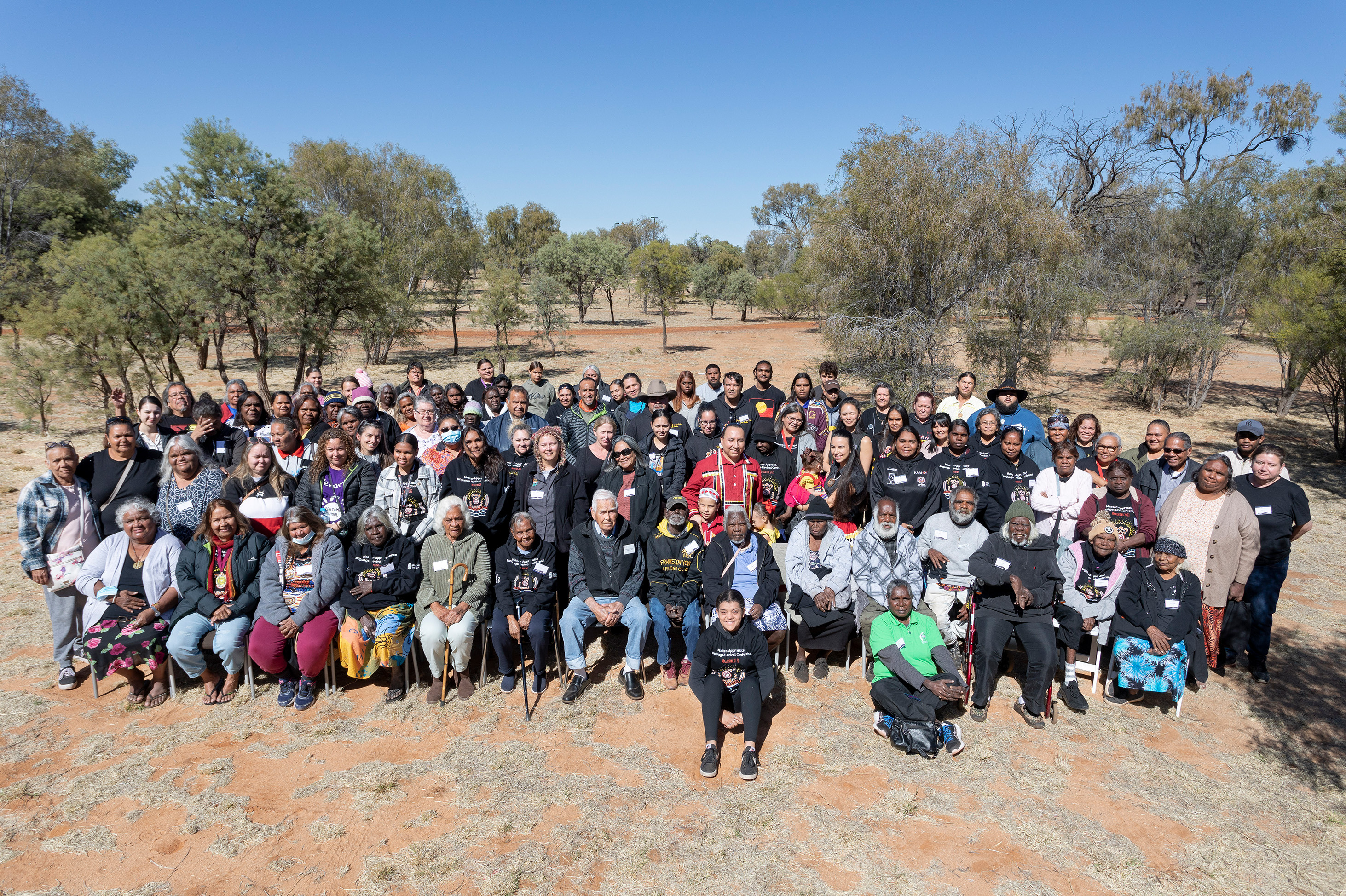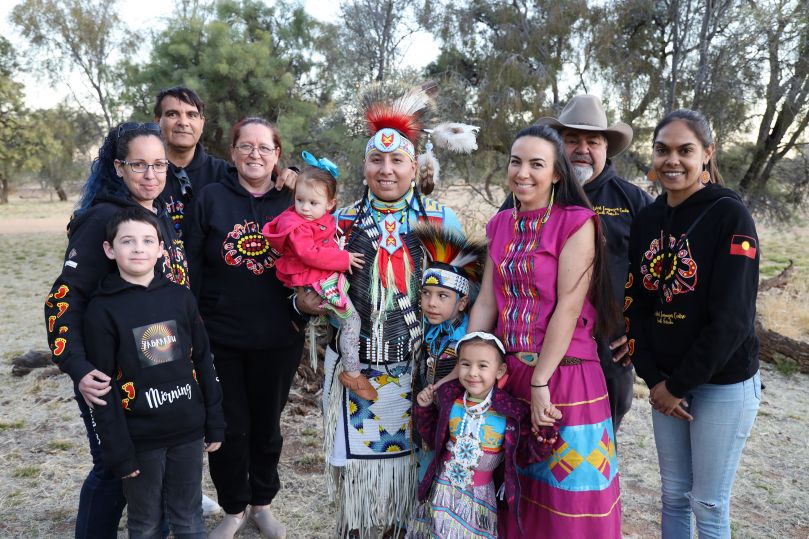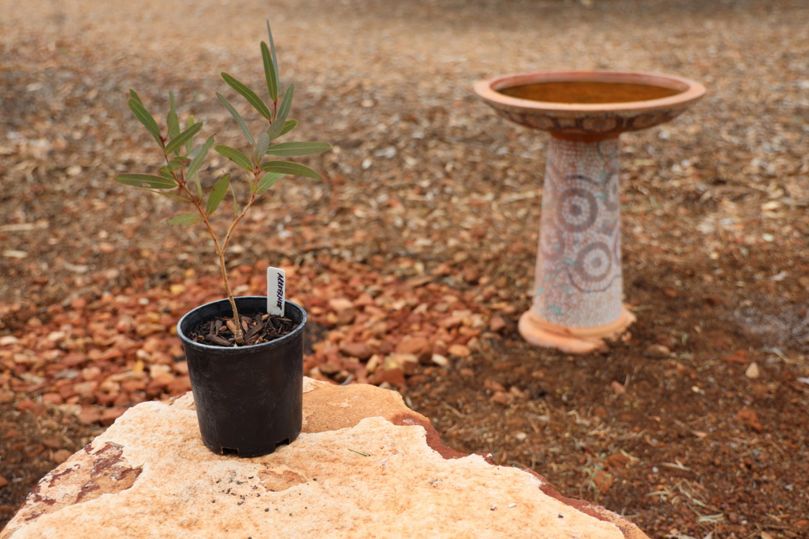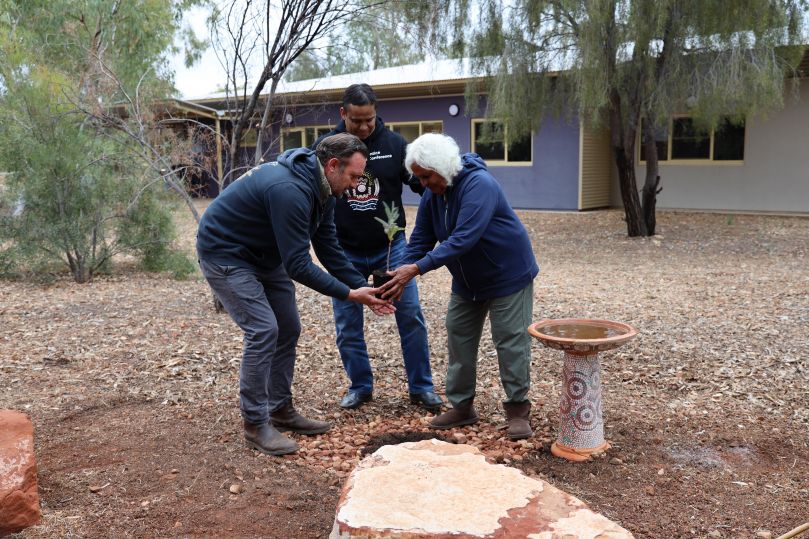

As part of vital efforts to help keep languages strong, the Master-Apprentice Indigenous Language Revival Conference was launched at the Desert People’s Centre in the Desert Knowledge Precinct, Alice Springs, on Monday 8 August 2022. The beginning of sessions at the conference aligned with International Day of the World’s Indigenous Peoples, and the event also coincided with the beginning of the International Decade of Indigenous Languages 2022-2032.
The conference has a crucial role to play in the revival and survival of endangered Australian Indigenous languages, with around 100 participants from Indigenous language groups from across Australia coming together with Native American language revival experts for the four-day event.
Sessions focused on the Master-Apprentice Program (MAP) method, which provides practical training on how to implement a language learning model designed for communities with small numbers of speakers and limited resources.
The MAP method was developed by small Indigenous language communities in the United States and has proven to be highly effective for endangered language communities with the least resources. The MAP model pairs fluent Elders, known as master speakers, with adult learners, known as apprentices, to rapidly develop fluency through breath-to-breath language immersion, using traditional oral intergenerational language transmission.
The international conference trainers represent the Yuchi Language Project, Advocates for Indigenous California Language Survival, and the Global Indigenous Language Caucus. The conference organiser, Pertame School, is a community-led language revival program empowering Elders to pass on their knowledge of Pertame, which is a severely endangered Central Australian language, to the next generations. Batchelor Institute hosted the conference at the Desert People’s Centre.
Halay Turning Heart, Project Administrator of the Yuchi Language Project, outlined the MAP method: “The Master Apprentice language learning method has been a game changer in revitalising our Yuchi language. It has the potential to make a huge difference in Australia where Aboriginal languages are also severely endangered like ours, with very few speakers and resources available. Through breath-to-breath learning in real-life contexts, Master Apprentice is an approach to create new younger speakers in a relatively short amount of time,” she said.
“We want to uplift the message that language loss is not a foregone conclusion. Right now is the critical time to begin this work as the last opportunity to learn directly from fluent speakers who are the living encyclopedias and knowledge sources for our communities,” she added.
The launch was a unique cultural exchange and included a dance from Arrernte Tinkerbee Dancers and a song from the Pertame School children’s choir in Pertame language, followed by a Lakota flute song, Prairie Chicken Dance and a Káruk prayer song. Over the following three days, the experienced trainers shared their knowledge about the MAP method, including focused sessions for Elder speakers and new apprentice learners and workshops providing direct training in using technology for documentation and as a learning aid.
“Batchelor Institute is incredibly proud and honoured to host the Master-Apprentice conference and to have our First Nations visitors share their experience with us. Batchelor Institute’s values perfectly align with this conference which is all about celebrating our strengths through culture,” said Batchelor Institute’s Assoc Prof Kathryn Gilbey.
“We are excited to have our campus bustling with people and the air full of First languages. Sharing of food, culture and language with family from across the ocean and communities and cultures from around Australia is key to Batchelor Institute’s vision and strengthening our practice and communities in the future,” she added.
On Thursday afternoon, Eastern Arrernte Elder Veronica Perrurle Dobson AM, along with Batchelor Institute staff, took part in a tree planting to symbolise the new growth that had emerged from the conference. Known as Arrkernke in Eastern and Central Arrernte languages, the Desert Bloodwood was chosen for being a long-living and beautiful shade tree. It is also known as the “supermarket tree” due to its many uses — from a home for native bees to a food source, a prized firewood, and its medicinal sap.
Conference participants took turns in offering water and blessings to the newly planted seedling, where a plaque is also expected to be installed to commemorate the inaugural conference.
The conference closed on the evening of 11 August 2022 with in-language performances and an Indigenous languages talent show, following a final session in which participants discussed the next steps and future planning for taking the MAP method back to communities around Australia.



